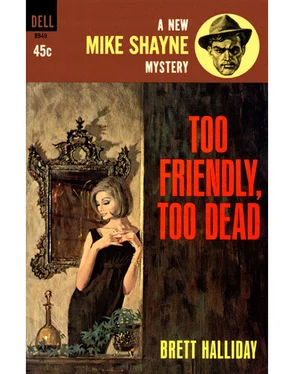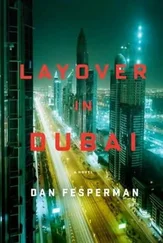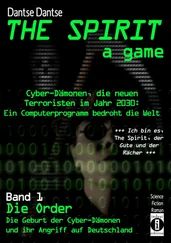Dan Fesperman - The Double Game
Здесь есть возможность читать онлайн «Dan Fesperman - The Double Game» весь текст электронной книги совершенно бесплатно (целиком полную версию без сокращений). В некоторых случаях можно слушать аудио, скачать через торрент в формате fb2 и присутствует краткое содержание. Жанр: Шпионский детектив, на английском языке. Описание произведения, (предисловие) а так же отзывы посетителей доступны на портале библиотеки ЛибКат.
- Название:The Double Game
- Автор:
- Жанр:
- Год:неизвестен
- ISBN:нет данных
- Рейтинг книги:3 / 5. Голосов: 1
-
Избранное:Добавить в избранное
- Отзывы:
-
Ваша оценка:
- 60
- 1
- 2
- 3
- 4
- 5
The Double Game: краткое содержание, описание и аннотация
Предлагаем к чтению аннотацию, описание, краткое содержание или предисловие (зависит от того, что написал сам автор книги «The Double Game»). Если вы не нашли необходимую информацию о книге — напишите в комментариях, мы постараемся отыскать её.
The Double Game — читать онлайн бесплатно полную книгу (весь текст) целиком
Ниже представлен текст книги, разбитый по страницам. Система сохранения места последней прочитанной страницы, позволяет с удобством читать онлайн бесплатно книгу «The Double Game», без необходимости каждый раз заново искать на чём Вы остановились. Поставьте закладку, и сможете в любой момент перейти на страницу, на которой закончили чтение.
Интервал:
Закладка:
Later, when we were all a little tipsy, he walked us to our hotel. As we prepared to say good-bye I was convinced we’d weathered the storm. But my news must have still been preying on his mind. Just outside the entrance he stopped and raised a finger in the air.
“There is something I remember now.” His eyes widened as he recalled the moment. “A visitor to our house. It really shook up my father.”
“A Russian?”
He shook his head.
“And not a policeman, either. A foreigner. His Czech was terrible. I remember hearing him. My father sent me to my room, but I listened. No one else was home. He was a man who sold books. Or bought them, maybe. It wasn’t altogether clear, but I know he had a big bag of them. Old ones, like your father used to buy. He was young, dressed like a hippie. To me he looked stoned, which I remember really astonished me. He carried a cane, although he seemed to walk just fine.”
Litzi glanced at me. A coldness bloomed at the base of my stomach, turning all that wine into chilly slush.
“You never heard his name?”
“No.”
“What did they talk about?”
“I don’t know. I couldn’t make out enough of the words. But the next day, when I wanted to go to your apartment, my father told me to stay away for a while. In a few more days, of course, things were normal again, and I never saw this man again.”
“His accent. Was it German?”
“Did you know him?” Karel looked surprised, even hurt, as if I’d been hoarding this secret from the beginning.
“I’m pretty sure his name is Lothar Heinemann. And if I had to guess, I’d say he’s in Prague right now. He might even be watching us.”
Karel wheeled around like a cornered bull, almost stumbling from all the wine. Litzi gave me a look that said I’d again been needlessly cruel, but our surroundings gave no cause for alarm. Drunken Scotsmen were still in abundance, along with an approaching phalanx of tourists lurching to and fro on Segways.
“Don’t worry,” I said. “It’s me he’s interested in.”
Our farewell was subdued, and I felt bad for Karel. He invited us back anytime, but you could tell his heart wasn’t in it. I should’ve kept my mouth shut about Lothar. I knew Litzi thought so, too, and she kept her distance as we crossed the lobby.
“Why Lothar?” she finally asked, as we wearily climbed the stairs. “He must have been more than just a book scout.”
“My dad thinks he used to hunt down rare titles for people in the Agency. Maybe their arrangement was for more than just books. Otherwise the idea that he talked to Karel’s dad makes no sense at all.”
“Unless he was KGB.”
“That’s a sobering thought.”
“Even if he was, you shouldn’t have unloaded on your friend Karel like that. Czechs of a certain age are still haunted in a way you’ll never understand.”
Like her father, she meant. No wonder she was feeling protective.
“You’re right. I’m sorry.”
We were exhausted, and probably would have been asleep within seconds of entering our room, if not for the message that greeted us when I flipped on the light.
“Not again,” Litzi groaned. “How did he find us?”
Another one of my Gohrsmuhle envelopes was perched on the pillows like a complimentary mint.
“Who knows? More marching orders, I guess. Wonder which book he’s torn apart this time?”
But this time there was only a folded sheet of stationery with a single typed line.
7 p.m., 22 Divadelni
“He must mean tomorrow,” Litzi said. “Do you know the address?”
“Quite well.” So well that I was stunned to see it again in black-and-white. “It’s our old apartment building, where Dad and I lived. Down by the river, third-floor balcony on the left. I guess my handler is trying to make me feel at home.”
I forced a smile, but Litzi didn’t join me.
“I thought you weren’t going to follow any more bread crumbs until you knew who was dropping them.”
“It seemed like a good idea at the time.”
“And now?”
“Maybe I should go back on the offensive.”
“How?”
“If the next crumb is waiting at my old apartment, I ought to be able to think of something. I did live there for three years.”
I lay awake for at least an hour, hectored by questions. Why did my handler want me to visit my old apartment? How had he tracked us down so quickly? And what could I possibly do to gain some- any — sort of advantage over his manipulation as this strange journey tunneled ever deeper into my past?
But my last waking thought was of the Lemaster passage that had hounded me throughout the train ride from Vienna.
Beware the Friendlies.
Easy for you to say, Richard Folly.
I fell asleep with Litzi in my arms.
22
Room by room, the bookstore known as Antikvariat Drebitko had spread like a termite colony. Over the years its sagging shelves had tunneled down hallways, eaten through retaining walls, and crawled into the windowless hideaways of three adjacent buildings along a cobbled alley in Prague’s Old Town.
My father once compared browsing there to exploring an abandoned mine.
“If you go,” he warned, “take a headlamp, watch for bats, and keep your eyes peeled for buried gems.”
The proprietor in those days was a wiry, hard-bargaining Czech named Vaclav Bruzek, who had long ago given up on trying to sort titles alphabetically or even by native tongue, although he had separated fiction from nonfiction and had established chaotic ghettoes for subjects such as travel, history, politics, and biography. Most of the books were in Czech, but the English and German interlopers easily numbered into the hundreds, and the supply was often interesting enough to make my dad’s foraging expeditions worthwhile. Dad had curried favor by giving Bruzek embassy copies of the International Herald Tribune, which boosted Bruzek’s black market trade in forbidden newspapers. In turn, Bruzek tipped Dad to his choicest acquisitions.
“How does he sell those newspapers without getting in trouble?” I’d once asked.
“Who do you think his customers are, Bill? Party officials, secret police. The very people he needs to keep happy to stay open.”
It was an early lesson in institutionalized hypocrisy, and the art of playing both sides against the middle. Such talents must have made Bruzek an attractive, yet risky, choice when Lemaster began setting up his courier network.
Back then, Bruzek had been in his late thirties. If he was alive he’d be pushing eighty.
A bell jangled as we entered, summoning a thin fellow in his mid-twenties, shirttail out, a pencil tucked behind his ear. He worked his thumbs at a phone while managing to negotiate his way down crooked rows of tables and shelves.
“I will be with you in a moment,” he said in perfect English. His phone twinkled as he sent the message, then he looked up with an air of inquiry.
“Yes?”
“I’m hoping to find Vaclav Bruzek. The elder, in case there’s a junior.”
“And you are?”
“An American journalist. My father was an old customer of Vaclav’s in the late sixties. I’m writing a piece for Vanity Fair magazine about the old days.”
He narrowed his eyes at the mention of the old days.
“My uncle doesn’t talk much about those times.”
So he was alive, at least, and this was his nephew.
“Do you know where I could find him?”
“He doesn’t like unexpected visitors.”
“Maybe you could ask him for me. My name’s Bill Cage. My father is Warfield Cage. He sent me here.”
His eyes flashed in recognition at the mention of Dad’s name.
“I am pleased to meet you,” he said. “I am Anton. Wait here.”
Читать дальшеИнтервал:
Закладка:
Похожие книги на «The Double Game»
Представляем Вашему вниманию похожие книги на «The Double Game» списком для выбора. Мы отобрали схожую по названию и смыслу литературу в надежде предоставить читателям больше вариантов отыскать новые, интересные, ещё непрочитанные произведения.
Обсуждение, отзывы о книге «The Double Game» и просто собственные мнения читателей. Оставьте ваши комментарии, напишите, что Вы думаете о произведении, его смысле или главных героях. Укажите что конкретно понравилось, а что нет, и почему Вы так считаете.












